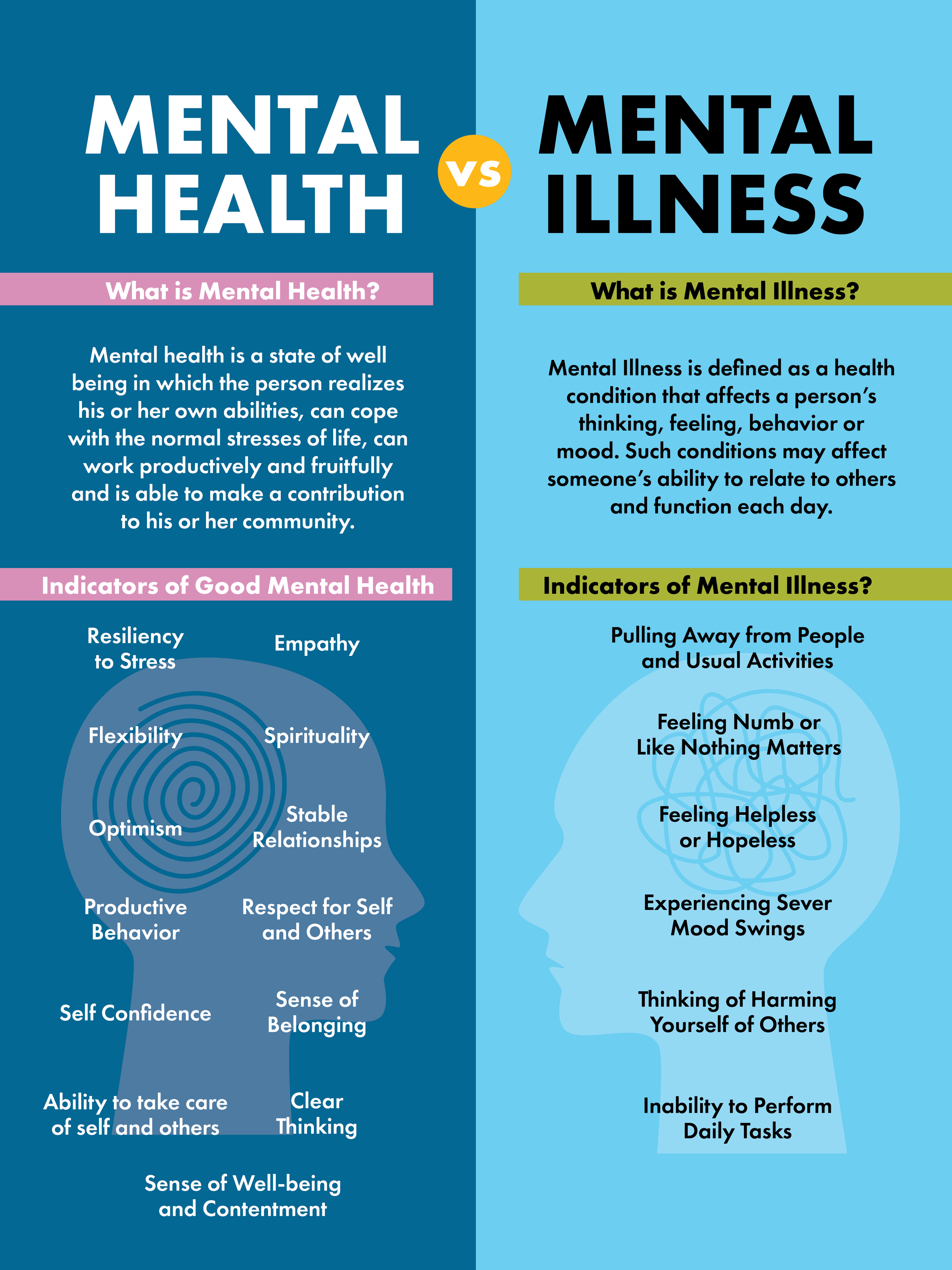Comprehensive Guide to Inpatient Mental Health Services Options
Comprehensive Guide to Inpatient Mental Health Services Options
Blog Article
Comprehensive Inpatient Mental Health Solutions for Effective Therapy
Inpatient mental wellness services stand for a crucial element of the healthcare system, supplying a organized and intensive atmosphere for individuals experiencing extreme psychological distress. These services use a multidisciplinary approach, integrating numerous evidence-based treatments to address the complicated demands of patients. Nevertheless, the performance of such extensive care prolongs past instant stablizing; it likewise incorporates the transition to outpatient assistance, a critical phase usually overlooked. Discovering the subtleties of this continuum discloses substantial effects for both specific recuperation and more comprehensive mental health and wellness results. What aspects genuinely affect this shift, and exactly how can we improve its effectiveness?
Understanding Inpatient Mental Wellness Providers
Inpatient mental health solutions supply important assistance for individuals experiencing severe emotional distress that can not be handled efficiently in an outpatient setting. These solutions are developed to offer an extensive level of treatment in a structured setting, usually within a health center or specialized center. Patients confessed to inpatient programs generally display intense signs, such as self-destructive ideation, serious depression, or psychosis, requiring round-the-clock surveillance and intervention.
The admission procedure normally entails a detailed analysis by mental wellness professionals, that evaluate the individual's psychological state, history, and instant demands. Once confessed, patients participate in a selection of healing techniques customized to their particular demands, consisting of medicine monitoring, specific therapy, and group sessions. This all natural approach intends to maintain the patient's condition, advertise safety, and foster coping skills.
Inpatient psychological health services not just address prompt health issues yet also act as a bridge to recurring care. By supplying a regulated setting, these services facilitate the growth of treatment strategies that can be proceeded in outpatient setups, hence guaranteeing a continuum of care and enhancing long-lasting end results for people with intricate mental health needs.
Key Components of Effective Treatment
Reliable therapy in inpatient psychological wellness solutions consists of several essential elements that promote recovery and stablizing. Primarily, an extensive evaluation is vital to identify the individual's specific needs and difficulties. This evaluation educates the growth of a customized therapy strategy, which offers as a roadmap for intervention.
One more essential element is the multidisciplinary team approach. Cooperation amongst psychoanalysts, psychologists, nurses, and social employees guarantees that various point of views contribute to the person's care, enhancing the effectiveness of therapy. Evidence-based healing techniques, such as cognitive-behavioral therapy (CBT) and dialectical behavior treatment (DBT), are also integral, giving organized techniques that deal with maladaptive thought patterns and behavior issues.

Last but not least, an emphasis on aftercare planning is essential to make certain a smooth transition to outpatient solutions, minimizing the danger of regression and promoting lasting health. These cumulative elements develop an efficient treatment structure within inpatient mental wellness services.
Benefits of Comprehensive Treatment

Detailed treatment in this link inpatient mental wellness solutions provides many advantages that significantly improve person outcomes. One of the main benefits is the alternative strategy to treatment, attending to not just the emotional symptoms but likewise the physical, social, and psychological demands of patients. This complete analysis allows for tailored interventions that promote overall wellness.
One more benefit is the integration of multidisciplinary teams, which promotes cooperation amongst healthcare professionals. This collaborative atmosphere makes certain that people obtain worked with treatment, decreasing the risk of fragmented therapy and boosting communication among caregivers. Additionally, thorough care helps with continuity of solutions, permitting for seamless shifts from inpatient to outpatient setups, which is important for long-term recovery.

Last but not least, the organized setting of detailed inpatient care provides a safe area for patients to take part in therapeutic activities, aiding them create coping approaches and durability. Jointly, these advantages contribute to much more reliable treatment and improved quality of life for people experiencing psychological health and wellness crises.
Evidence-Based Therapeutic Approaches
In the world of psychological wellness treatment, evidence-based healing methods play a vital duty in guaranteeing that individuals get efficient helpful resources and medically supported interventions. These approaches integrate the very best available research with clinical know-how and client values, cultivating a customized therapy experience that attends to specific requirements.
Cognitive Behavior Treatment (CBT) is among one of the most extensively acknowledged evidence-based approaches, concentrating on recognizing and transforming negative idea patterns and actions. This structured method has actually shown efficacy in treating problems such as anxiousness, depression, and ptsd. Likewise, Dialectical Actions Therapy (DBT) is specifically reliable for people with borderline personality disorder, emphasizing the development of emotional policy and interpersonal efficiency abilities.
In addition, drug monitoring is frequently an important element of evidence-based treatment, as psychotropic medications can reduce symptoms and boost total functioning. Collaborative care versions, which entail multidisciplinary groups, even more enhance the efficacy of inpatient solutions Visit Website by making certain thorough analyses and constant monitoring.
Ultimately, the assimilation of evidence-based restorative methods not only advertises favorable medical outcomes yet likewise empowers people, cultivating a sense of firm and durability in their mental wellness journeys.
Transitioning to Outpatient Assistance
The shift from inpatient mental wellness services to outpatient assistance marks an essential stage in a client's recuperation journey. This duration needs careful planning and coordination to make sure continuity of treatment and to minimize the threats of relapse or dilemma. Reliable discharge preparation should start early in the inpatient remain, including a multidisciplinary team that consists of psychoanalysts, psychologists, nurses, and social workers.
Key aspects of an effective shift consist of the development of a comprehensive aftercare strategy customized to the individual's certain needs. This plan needs to outline follow-up visits, drug management, and healing treatments, along with determine area resources and support system that can help with recurring recuperation.
Furthermore, person and family education and learning is essential during this stage. Understanding the indications of possible setbacks and the value of sticking to therapy can encourage clients and their assistance systems.
Normal follow-up and review of the outpatient plan are vital to address developing difficulties. By cultivating a collaborative relationship between outpatient and inpatient carriers, the likelihood of sustained recovery increases, eventually boosting the client's lifestyle and reducing the risk of readmission.

Final Thought
In summary, extensive inpatient mental health services offer a necessary structure for resolving serious mental distress with a multidisciplinary technique. Eventually, such detailed treatment is crucial for long-lasting mental health and wellness and well-being.
The admission process usually includes a thorough assessment by psychological wellness specialists, who review the person's mental state, background, and immediate requirements.Effective therapy in inpatient psychological health and wellness services makes up several key components that promote healing and stablizing.Thorough treatment in inpatient psychological health solutions provides various benefits that dramatically enhance patient outcomes.The change from inpatient mental health services to outpatient support notes an essential phase in a person's healing journey.In summary, comprehensive inpatient psychological health solutions provide an important structure for attending to severe emotional distress through a multidisciplinary strategy.
Report this page